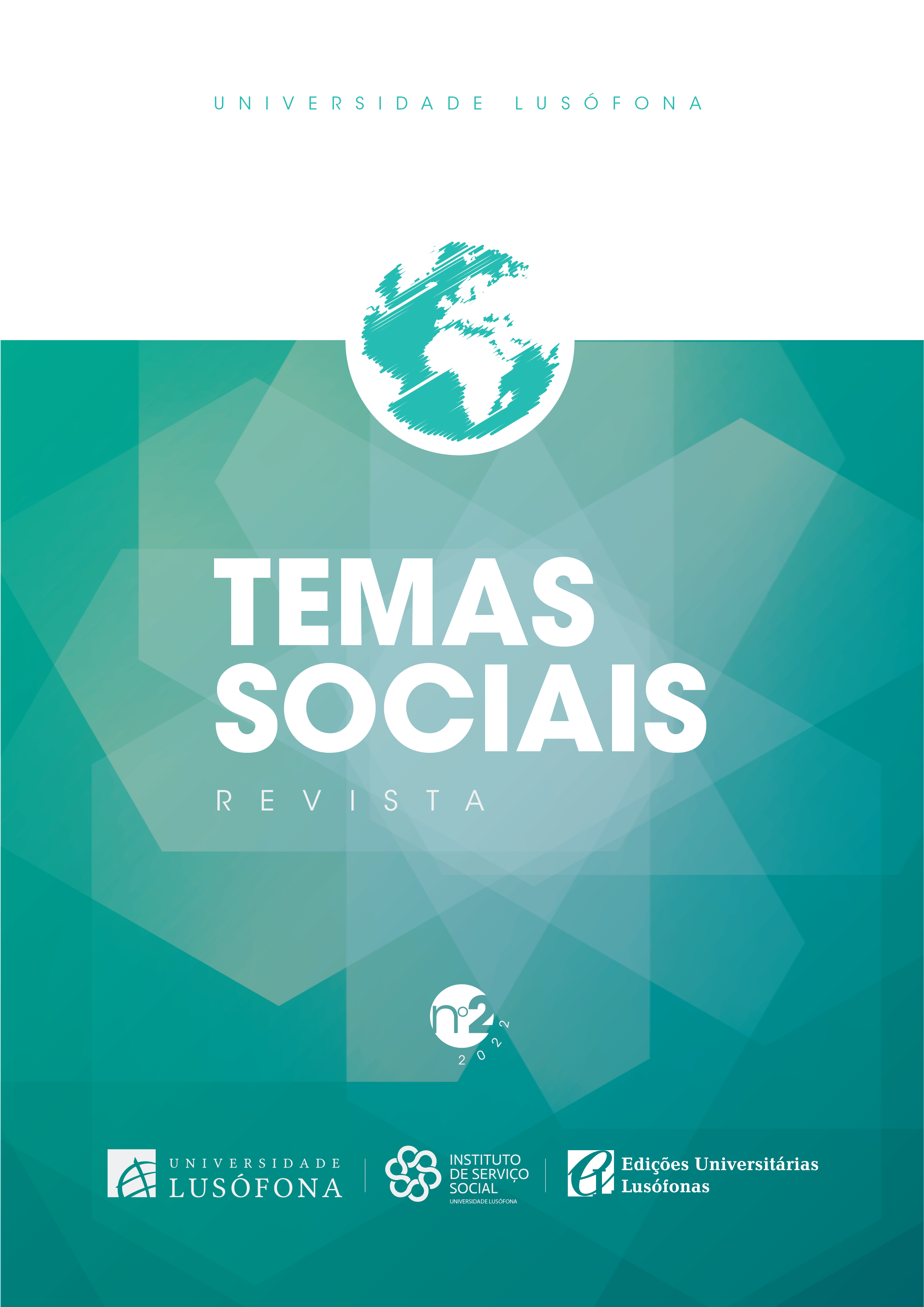A intervenção do serviço social nas Unidades de Cuidados Continuados Integrados em tempo de pandemia. Estudo realizado nas ULDM da Comunidade Intermunicipal do Oeste
https://doi.org/10.53809/TS_ISS_2022_n.2_87-106
Abstract
The Continued Care National Network (RNCCI - Rede Nacional de Cuidados Continuados Integrados), results from a partnership between Ministério do Trabalho e da Solidariedade Social and Ministério da Saúde to ensure rehabilitation, readaptation ofc social and family reintegration of people in a situation of dependece. It´s a policy that State regulates, through agreements and partnerships with the third sector and private entities. The pandemic, as an unprecedented public health crisis, has brought enormous challenges to the protection of the well-being and citizens human rights. The study focuses on the intervention of social work in the Long-Term and Care Units (ULDM - Unidades de Longa Duração e Manutenção) as well as the strategies used during the pandemic, with the aim of offering a vision of the economic and social vulnerabilities of the patients of ULDM inserted in the Inter-municipal Community of the West of Portugal (OesteCIM). The work is based on a qualitative methodology using a semi-directive interview technique. The study demonstrates that, of the 180 ULDM patients, 81 are considered "social cases" which, in the words of the interviewees, are patients with a reduced family and economic support. The persistence and resilience of Social Workers and their permanent attempt to find a social solution for these patients is highlighted, as well as the family involvement to maintain affective bonds. It was reported the most harmful consequence caused by the impact of the pandemic was the absence of visits.
Downloads
Open Access Policy:
The Journal facilitates free, open and immediate access to its contents to foster the exchange of knowledge at a global level.
By submitting their work, the author(s) authorise the publication and dissemination of their work and are responsible for its content.
Code of Ethics:
The Journal is a digital tool that enables the dissemination of knowledge in a globalised society where technology, communication and information occupy a prominent place. The publication promotes equal opportunities facilitated by knowledge. To this end, the Journal is committed to the content it publishes, adopting a code of ethics based on the following principles:
1. The texts received must be original, by the author(s) alone and unpublished, i.e. they must not have been previously published, broadcast or sent to another publication.
2. Authors are responsible for requesting any authorisations necessary to publish their texts, with the respective reference to the sources consulted.
3. That organisation must authorise work funded by an organisation to disseminate the results.
4. the plagiarism detection tool in force will review all work received at Universidade Lusófona - Centro Universitário de Lisboa.
5. The articles received will be evaluated by two experts in the field, guaranteeing the anonymity of the author(s) and the evaluators.
6. Papers involving people as the research subject must obtain informed consent from all of them, with strict respect for the confidentiality of personal data and, if necessary, the decision of the Ethics Committee.
7. The list of authors should only include those who contributed intellectually to the work, i.e., who designed and carried out the research, wrote up and analysed the results and approved the final version of the text.



